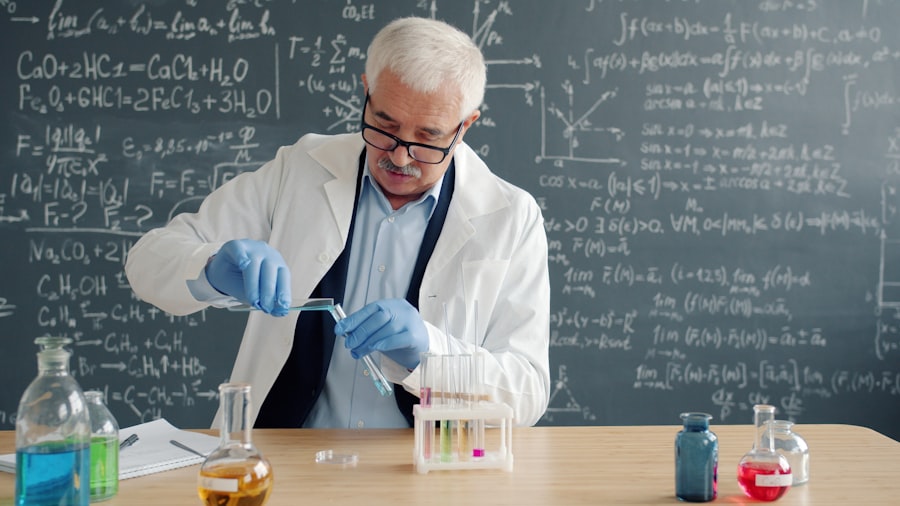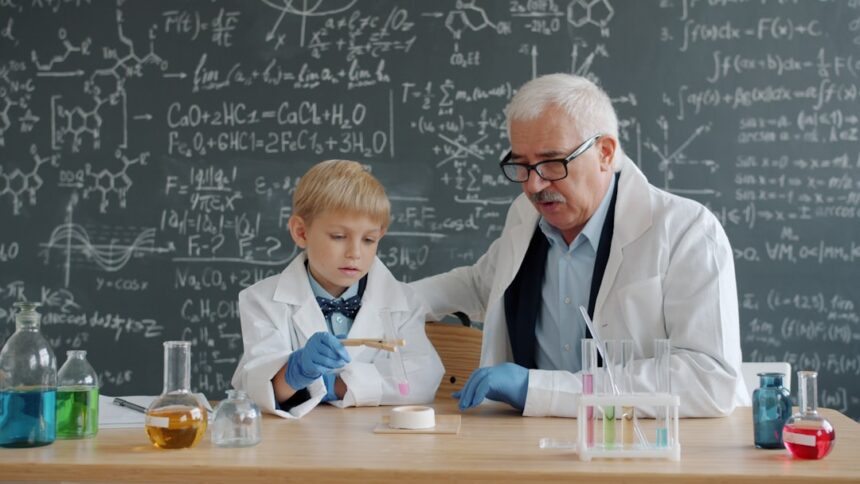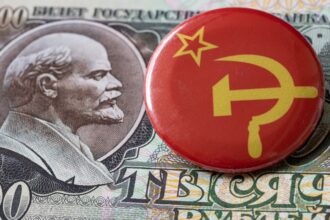The post-World War II era marked a significant turning point in the history of science and technology, particularly in the context of the Soviet Union. Among the many factors that contributed to the rapid advancements in Soviet scientific capabilities during this period was the influx of German scientists who had been displaced by the war. These individuals, many of whom were highly skilled and experienced in their respective fields, found themselves in a unique position to influence the trajectory of Soviet research and development.
Their expertise not only filled critical gaps in knowledge but also facilitated the transfer of advanced technologies that had been developed in Germany prior to the war. The arrival of German scientists in the Soviet Union was not merely a matter of relocation; it represented a complex interplay of political, social, and scientific dynamics. The Soviet government recognized the potential benefits of harnessing this talent pool, leading to initiatives aimed at integrating these scientists into various research institutions.
This collaboration was characterized by a blend of cooperation and tension, as the German scientists navigated their new environment while grappling with the implications of their past affiliations. The legacy of their contributions would resonate throughout the decades that followed, shaping not only Soviet science but also the broader geopolitical landscape.
Key Takeaways
- German scientists played a significant role in the technological advancements of the Soviet Union, particularly in the military and space programs.
- They faced numerous challenges, including ethical and moral dilemmas, as well as collaboration and competition with Soviet scientists.
- The impact of German scientists extended beyond the military and space programs to the industrial and agricultural sectors of the Soviet Union.
- Their influence on Soviet Union’s scientific research and development was enduring, leaving a lasting legacy.
- The return of German scientists to Germany had a significant impact on the Soviet Union, shaping its future scientific and technological landscape.
The Role of German Scientists in Soviet Union’s Technological Advancements
German scientists played a pivotal role in propelling the Soviet Union into a new era of technological advancement. Their expertise spanned a wide array of disciplines, including engineering, physics, and chemistry, which were crucial for the development of various industries. The Soviet leadership recognized that these scientists could significantly enhance their capabilities in areas such as aerospace, nuclear technology, and materials science.
As a result, many German experts were recruited to work on high-priority projects that aligned with the Soviet Union’s strategic goals. One notable example of this collaboration was in the field of rocketry. German engineers, particularly those who had worked under Wernher von Braun during World War II, brought invaluable knowledge to the Soviet space program.
Their insights into propulsion systems and missile technology laid the groundwork for significant advancements that would eventually lead to the launch of Sputnik and the subsequent space race with the United States. The integration of German scientific knowledge into Soviet projects not only accelerated technological progress but also fostered an environment where innovation could thrive.
Challenges Faced by German Scientists in Soviet Union

Despite their contributions, German scientists faced numerous challenges while working in the Soviet Union. The political climate was fraught with suspicion and scrutiny, as many were viewed through the lens of their past affiliations with Nazi Germany. This historical baggage created an atmosphere of mistrust, complicating their integration into Soviet scientific circles.
Many German scientists found themselves under constant surveillance, which stifled their creativity and made collaboration with their Soviet counterparts more difficult. Additionally, cultural differences posed significant hurdles. The German scientists had to adapt to a new way of working that often clashed with their previous experiences in a more liberal academic environment.
The rigid structure of Soviet research institutions and the emphasis on collective over individual achievement were foreign concepts for many. This adjustment period was marked by frustration and disillusionment as they navigated bureaucratic obstacles and sought to establish their credibility within a system that was often resistant to change.
The Impact of German Scientists on Soviet Union’s Military and Space Programs
| German Scientists | Impact on Soviet Union |
|---|---|
| Wernher von Braun | Played a key role in developing Soviet Union’s rocket technology |
| Hermann Oberth | Contributed to the development of Soviet Union’s missile program |
| Helmut Gröttrup | Worked on Soviet Union’s early space program and missile development |
The contributions of German scientists to the Soviet military and space programs were profound and far-reaching. Their expertise in aerodynamics, missile technology, and nuclear physics directly influenced the development of advanced weaponry and space exploration initiatives. The knowledge they brought from Germany was instrumental in shaping the Soviet Union’s military strategy during the Cold War, allowing it to compete effectively with Western powers.
In particular, the work of German engineers on ballistic missile technology laid the foundation for the Soviet Union’s intercontinental ballistic missile (ICBM) program. This capability not only enhanced national security but also served as a powerful deterrent against potential adversaries. Furthermore, the collaboration between German scientists and Soviet military officials led to breakthroughs in satellite technology, culminating in successful missions that showcased Soviet prowess in space exploration.
The launch of Sputnik in 1957 marked a watershed moment in human history, demonstrating the significant impact that these scientists had on both military and civilian applications.
The Contribution of German Scientists to Soviet Union’s Industrial and Agricultural Sectors
Beyond military and space applications, German scientists made substantial contributions to the industrial and agricultural sectors of the Soviet Union. Their expertise in engineering and technology facilitated improvements in manufacturing processes, leading to increased productivity and efficiency across various industries. This transformation was particularly evident in sectors such as metallurgy, chemical production, and machinery manufacturing, where German methodologies were adapted to meet Soviet needs.
In agriculture, German agronomists introduced innovative techniques that revolutionized farming practices within the Soviet Union. They shared knowledge about crop rotation, soil management, and pest control, which significantly enhanced agricultural yields. These advancements were crucial for a nation striving for self-sufficiency in food production during a time when agricultural challenges were prevalent.
The integration of German scientific principles into Soviet agriculture not only improved food security but also contributed to broader economic stability.
The Ethical and Moral Dilemmas Faced by German Scientists in Soviet Union

The presence of German scientists in the Soviet Union was not without its ethical and moral dilemmas. Many grappled with their past affiliations and the implications of their work within a regime that had its own controversial history. For some, this conflict manifested as a deep sense of guilt over their previous roles in wartime Germany, leading them to question whether their contributions were ultimately serving a just cause or perpetuating another form of oppression.
Moreover, the political environment posed ethical challenges regarding scientific integrity and freedom. Many German scientists found themselves at odds with the ideological constraints imposed by the Soviet regime, which often prioritized political objectives over scientific inquiry. This tension raised questions about the responsibility of scientists to uphold ethical standards while working within a system that may not align with their personal values.
As they navigated these complexities, many sought ways to reconcile their contributions with their moral beliefs, leading to a profound internal struggle.
The Collaboration and Competition Between German and Soviet Scientists
The relationship between German and Soviet scientists was characterized by both collaboration and competition. While they often worked together on joint projects aimed at advancing scientific knowledge, underlying tensions frequently emerged due to differing approaches and philosophies. German scientists brought with them a tradition of individualism and innovation that sometimes clashed with the collectivist ethos prevalent in Soviet research institutions.
This dynamic created an environment where collaboration could yield remarkable results but also fostered rivalry among researchers vying for recognition and resources. In some cases, this competition led to breakthroughs as scientists pushed each other to excel; however, it also resulted in friction that could hinder progress. The interplay between cooperation and competition ultimately shaped the scientific landscape within the Soviet Union during this transformative period.
The Legacy of German Scientists in Soviet Union
The legacy of German scientists in the Soviet Union is multifaceted and enduring. Their contributions laid the groundwork for significant advancements across various fields, from aerospace engineering to agricultural practices.
Moreover, this legacy extends beyond mere technological achievements; it encompasses a complex narrative of collaboration amidst adversity. The experiences of these scientists serve as a testament to the resilience of human ingenuity in overcoming challenges posed by political ideologies and historical circumstances. As such, their impact continues to be felt not only within Russia but also across the global scientific community.
The Influence of German Scientists on Soviet Union’s Scientific Research and Development
The influence of German scientists on Soviet research and development was profound and transformative. Their methodologies and approaches introduced new paradigms that reshaped scientific inquiry within the Soviet context. By integrating advanced techniques from Germany into existing frameworks, they facilitated a shift towards more rigorous experimental practices and data-driven research.
This influence extended beyond specific projects; it permeated educational institutions as well. Many German scientists took on teaching roles within universities and research institutes, imparting their knowledge to a new generation of Soviet scientists. This transfer of expertise helped cultivate a culture of innovation that would eventually contribute to significant achievements in various fields, including physics, chemistry, and engineering.
The Return of German Scientists to Germany and its Impact on Soviet Union
As political dynamics shifted over time, many German scientists eventually returned to Germany after years spent in the Soviet Union. This repatriation had significant implications for both nations involved. For Germany, it represented an opportunity to reintegrate valuable talent into its own scientific community during a period marked by reconstruction and modernization.
Conversely, the departure of these scientists left a void within the Soviet scientific landscape. While some had established lasting legacies through their contributions, others took with them critical knowledge that could have further advanced Soviet research efforts. This brain drain underscored the complexities inherent in international scientific collaboration—while partnerships can yield remarkable results, they can also lead to challenges when individuals choose to return home.
The Enduring Impact of German Scientists in Soviet Union
In conclusion, the impact of German scientists on the Soviet Union was both profound and enduring. Their contributions spanned multiple sectors—military, industrial, agricultural—and laid essential foundations for technological advancements that would define an era.
The legacy left behind by these scientists continues to resonate today, serving as a reminder of how collaboration across borders can lead to remarkable achievements even amidst complex historical contexts. As modern societies grapple with similar challenges related to migration and international cooperation in science, the experiences of German scientists in the Soviet Union offer valuable lessons about resilience, innovation, and the enduring quest for knowledge.
In the aftermath of World War II, many German scientists found themselves working in the Soviet Union, contributing to various scientific and technological advancements. This period was marked by intense competition between the Soviet Union and the Western powers, as both sides sought to leverage the expertise of these scientists for their own strategic gains. For a deeper understanding of the geopolitical dynamics and the impact of these scientists’ work during this era, you can explore a related article on the topic by visiting




